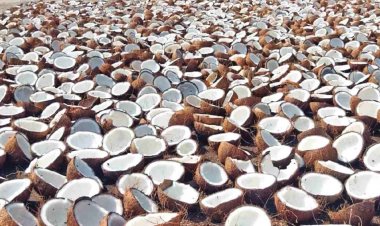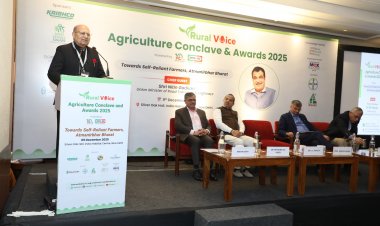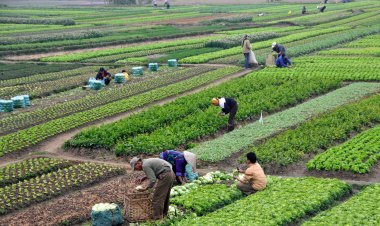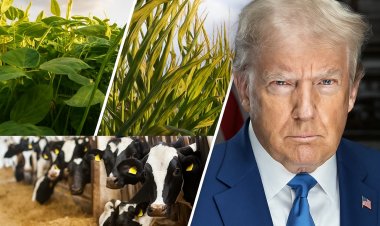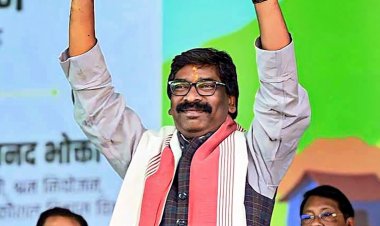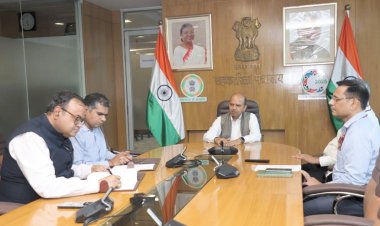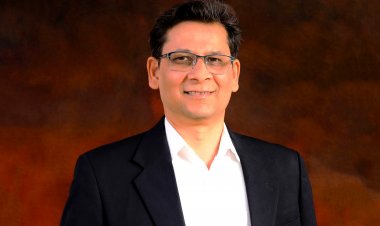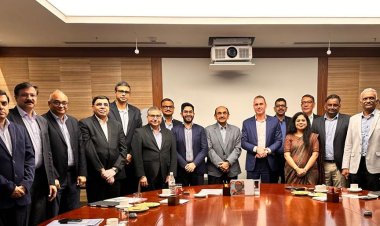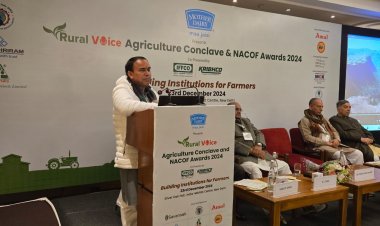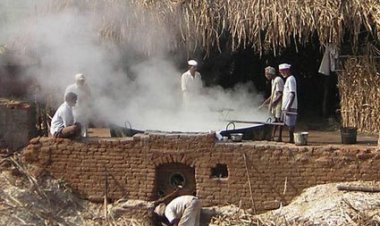Farmer organizations discuss digitalization in agriculture
A two-day workshop on 'Digitalisation in Agriculture: A Discussion with Farmers’ Groups' was held in New Delhi November 21-22. It was organized by Rural Voice, ASHA, Bharat Krishak Samaj and IT for Change. It saw experts exchanging their experiences in digitalization and discussing related policy matters. It was discussed, among other things, that the government should not pursue digitalization in agriculture until there was a data protection legal framework in place.
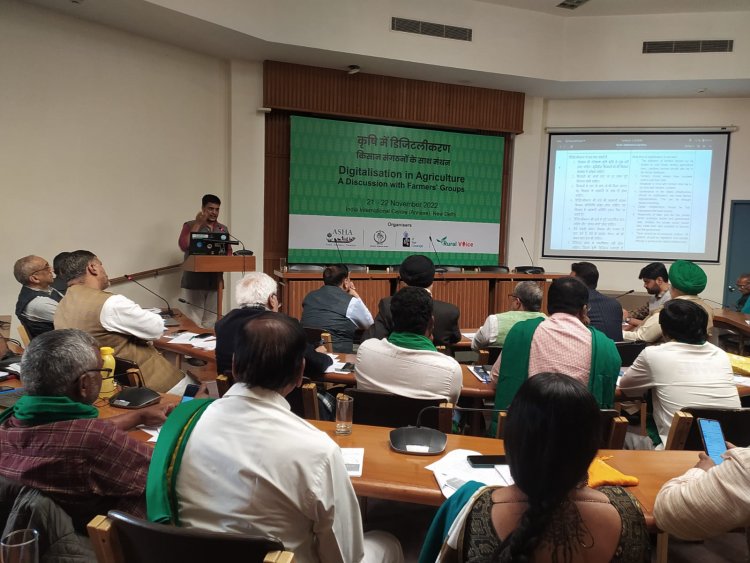
A two-day workshop on 'Digitalisation in Agriculture: A Discussion with Farmers’ Groups' was held in New Delhi November 21-22. It was organized by Rural Voice, ASHA, Bharat Krishak Samaj and IT for Change.
The workshop saw experts exchanging their experiences in digitalization and discussing related policy matters. It came to a conclusion with many suggestions. It was discussed, among other things, that the government should not pursue digitalization in agriculture until there was a data protection legal framework in place.
Bharat Krishak Samaj Chairman Ajay Vir Jakhar said that fertilizer subsidies, bank loans, weather forecasts, registry, etc. had been digitalized. But he felt that the data that corporates were collecting should also be made available to the farmers. His fear was that "in a bid to put an end to middlemen, we may end up with bigger middlemen whose face we do not see."
Throwing light on what was meant by digitalization, Nachiket from ASHA spoke on matters relating to inputs, production and market.
He cautioned that various apps were available these days, but care should be taken to find out if they were meant to help farmers or serve the commercial interests of corporate houses.
To drive home his point, Nachiket said when an app suggested a particular fungicide, one should find out if it is suggesting a particular brand to help a corporate house or making farmers aware to benefit from the advice.
He said that plenty of data available was available on the Internet, "but the moot question is whether the information is intended to help farmers or to make middlemen and corporate houses richer".
IT for Change executive director Parminder Jeet Singh said, "We work for right digitalization." Regarding the purpose of this workshop, he said, "It is necessary to have ammunition before we wage a war."
In his opening remarks, Harvir Singh, Editor-in-Chief of Rural Voice, a virtual platform championing farmers' issues, set the tone of the workshop attended by representatives from various farmers' organizations from different states.
"This is the dawn of an era of digitalization in agriculture. It's the beginning and it will continue," he said.
Singh said the issue would touch everyone, including farmers, traders and consumers. "It is a new subject. We will have a detailed discussion and debate on what impact it will have on farmers and the rural economy, " he said.
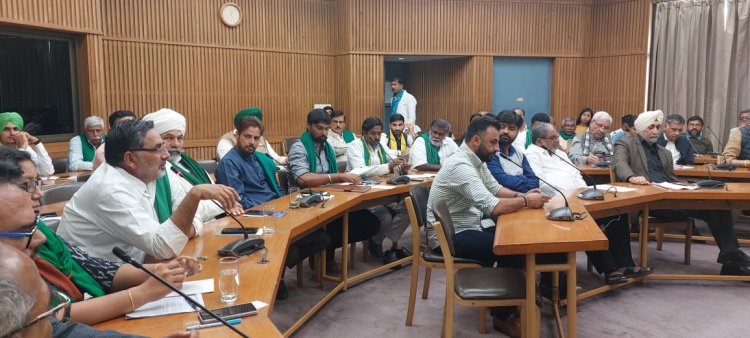
VM Singh drew attention to the fact that not all farmers were tech-savvy and suggested that the government should carry out experiments in state-owned research centres rather than treating poor farmers as guinea pigs.
He said that farmers belonging to older generations were not familiar with the Internet or aware of the digital world, while the tech-savvy youths were not interested in agriculture.
One of the speakers suggested the use of satellite surveys of agricultural land to assess the damage caused by the vagaries of nature every now and then.
A reference was also made by certain experts to the use of drones. They wondered as to what fraction of farmers were able to take benefit of the new technology.
Yudhvir Singh suggested that the government should first educate farmers before going in for digitalization in a big way.
Rakesh Tikait was of the view that the data collected should be genuine and help farmers instead of commercial houses.
Kannaiyan Subramaniam, a farmer leader from South India, said, "Giant corporates are against the competitive principles of the country. The system to control corporate consolidation has collapsed."
He added, "We welcome digitalization, but when everything is controlled by a few, it is cause for concern. Data sovereignty should be there."
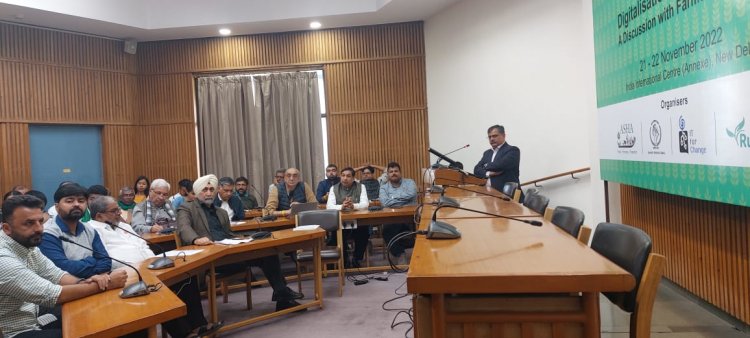
Naresh Sirohi, former General Secretary, BJP Kisan Morcha, said, "We have to be alert on the issue of manipulation and monopoly. There should be a regulatory authority with legal rights at the national level to control it. Manipulation of data and pricing of agricultural produce do a lot of harm to the farmers."
Apart from a focus on data protection, the workshop came to several other conclusions. It felt that the policy for digitalization in agriculture was not a technology/IT policy but an agriculture policy. The committee developing this should have farmer representatives.
The digital infrastructure in agriculture must be under the complete control of the government. Besides, digitalization should not impinge on federalism.
Digital modes should not be mandatory. Access to the Internet and digital literacy needs to be improved.
The definition of farmers should not be limited to only those owning agricultural land. Landless farmers should also be in the farmer database.
Farmers should always have complete control over their data, including interoperability. Whatever is done with the farmer’s data has to be done with the farmer’s consent.
There should be reciprocity of data. Just like the private sector accesses farmer and government data, the private sector should also make their data available to the farmers and the government.
Prominent participants included Yudhvir Singh and Rakesh Tikait from the Bharatiya Kisan Union (BKU), Rashtriya Kisan Mazdoor Sangathan (RKMS) convener VM Singh, president of Swabhimani Shetkari Sanghatana (SSS) and former parliamentarian Raju Shetty, Nachhater Singh, spokesperson of BKU Lakhowal, South Indian Coordination Committee of the Farmers’ Movement general secretary Kannaiyan Subramaniam, besides representatives from several other farmers' organizations. Many of them feared that digitalization in agriculture would end up helping corporate houses more rather than making the farmers richer.



 Join the RuralVoice whatsapp group
Join the RuralVoice whatsapp group

















